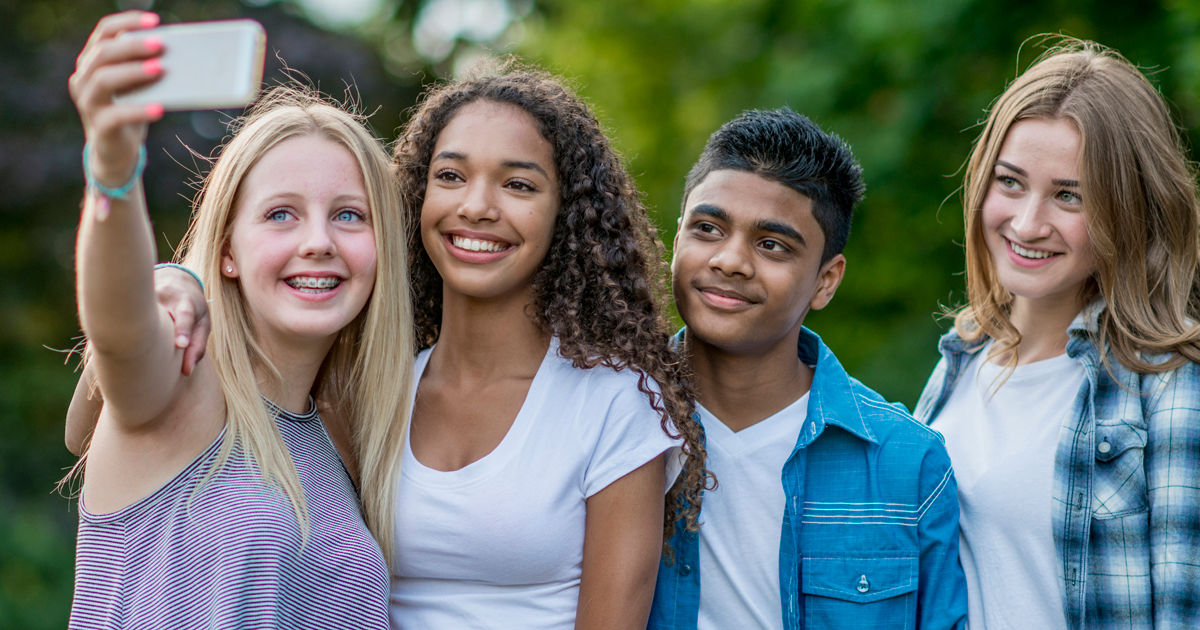3 reasons why teens and adolescents should get COVID-19 vaccines

Kids ages 12 and up can get the Pfizer COVID-19 vaccine, and the Pfizer COVID-19 vaccine is finally fully approved by the U.S. Food and Drug Administration. This is really great news.
The American Academy of Pediatrics (AAP) supports COVID-19 vaccinations for this age group, and so do we. Here are three key reasons we're excited about children gaining protection against COVID-19.
1. Stopping the spread of COVID-19
Family physician Scott McPherson, MD, says, "Children make up a huge percentage of the people who live in this country. Having children get vaccinated will make a big difference as far as reducing transmission of the virus and reducing infections."
Vaccinations are more effective as higher percentages of the population become vaccinated.
"Herd immunity means a vast majority of people – adults and children – have antibodies against a certain disease through vaccination or infection," Dr. McPherson explains. "Herd immunity breaks the cycle of infection. With enough people immune, the virus can't travel from one person to another."
"It's like a firebreak. If you cut down a lot of trees between areas with lots of trees, you'll have a place where the fire stops," Dr. McPherson says. "The same thing happens with a vaccine and a contagious virus. If a lot of people around a sick person are immune because of vaccines, the virus stops in its tracks. So vaccines prevent the spread of COVID-19."
2. Children are not immune to COVID-19
It's less common for children to have severe illness, but with the delta variant, these statistics are changing, and it's clear that kids can sometimes get very sick with COVID-19. Vaccines protect children from the both temporary and long-term effects of COVID-19.
There have been 4.5 million U.S. kids infected with COVID-19 as of Aug. 19, according to AAP. COVID-19 has killed more than 400 kids across the country and hospitalized over 18,000 children. So while it's true that children are less likely than adults to have a severe reaction to COVID-19, if it's your child that suffers a severe case, the overall low rates will be of little comfort.
Even mild COVID-19 can cause multisystem inflammatory syndrome in children (MIS-C), which may affect more than one area of the body. "MIS-C can affect a child's heart, lungs, kidneys, brain, eyes or skin. That's why it's called multisystem. We don't really understand why it happens, but it can be very devastating," says Dr. McPherson. "MIS-C is one of the causes of death in children when they've had COVID-19." At least 4,400 children have developed MIS-C in the U.S.
Dr. McPherson says if you see any of these warning signs for MIS-C, take your child to the emergency room. Warning signs for MIS-C include:
- Vomiting
- Diarrhea
- Headaches
- Bloodshot eyes
- Difficulty breathing
- Seriously tired
- Gray or blue skin
3. So life can get back to normal
It's been hard to cancel events, sleepovers and extracurricular activities. And teenagers missed out socially, too. Getting vaccinated is the way to bring our community back together safely.
"How many kids didn't have a prom last year?" says Dr. McPherson. "How many seniors didn't have graduation? All kinds of events that our kids would have participated in – football games, other sports, musicals, concerts – have been put on hold.
"We've learned to adapt, but we really crave community. We crave being together with other people. Getting vaccinated and cutting down the spread of COVID-19 will make these events possible again."
What about side effects of the vaccine?
Remember that side effects are your own body's response to a vaccine. Vaccines teach your immune system how to fight a specific disease. For COVID-19, vaccines give your body a tiny piece of the coronavirus spike protein as practice. Vaccines do not give you the live coronavirus or COVID-19. "Vaccines are much safer than the disease itself," says Dr. McPherson.
Children experience the same side effects as adults for the COVID-19 vaccine. "The most common side effect is pain in the arm where they get the shot," says Dr. McPherson. "The next day, they might feel tired or get a headache. To a lesser extent, children may get a fever, chills or have generalized body aches. It may be the first or it may be the second dose where they have more side effects."
"Don't pre-treat side effects," says Dr. McPherson. Meaning, don't give your kids a painkiller before they get their shot. "But once your child starts feeling those side effects, you can give them over-the-counter medicine like acetaminophen or ibuprofen. It might also be as simple as hydration."
"Severe side effects that require medical attention aren't common," says Dr. McPherson. "Hospitalizations for vaccinations hasn't been a big problem, whereas certainly with COVID-19, it's more common for people to get sick and need to be hospitalized for the disease."
The Pfizer studies in children ages 12 to 15 had zero cases of COVID-19 in the vaccinated group. But 18 adolescents in the placebo group (who did not get a vaccine) got symptomatic COVID-19. So the vaccine is effective at doing what it's supposed to do: stopping the spread of COVID-19.




